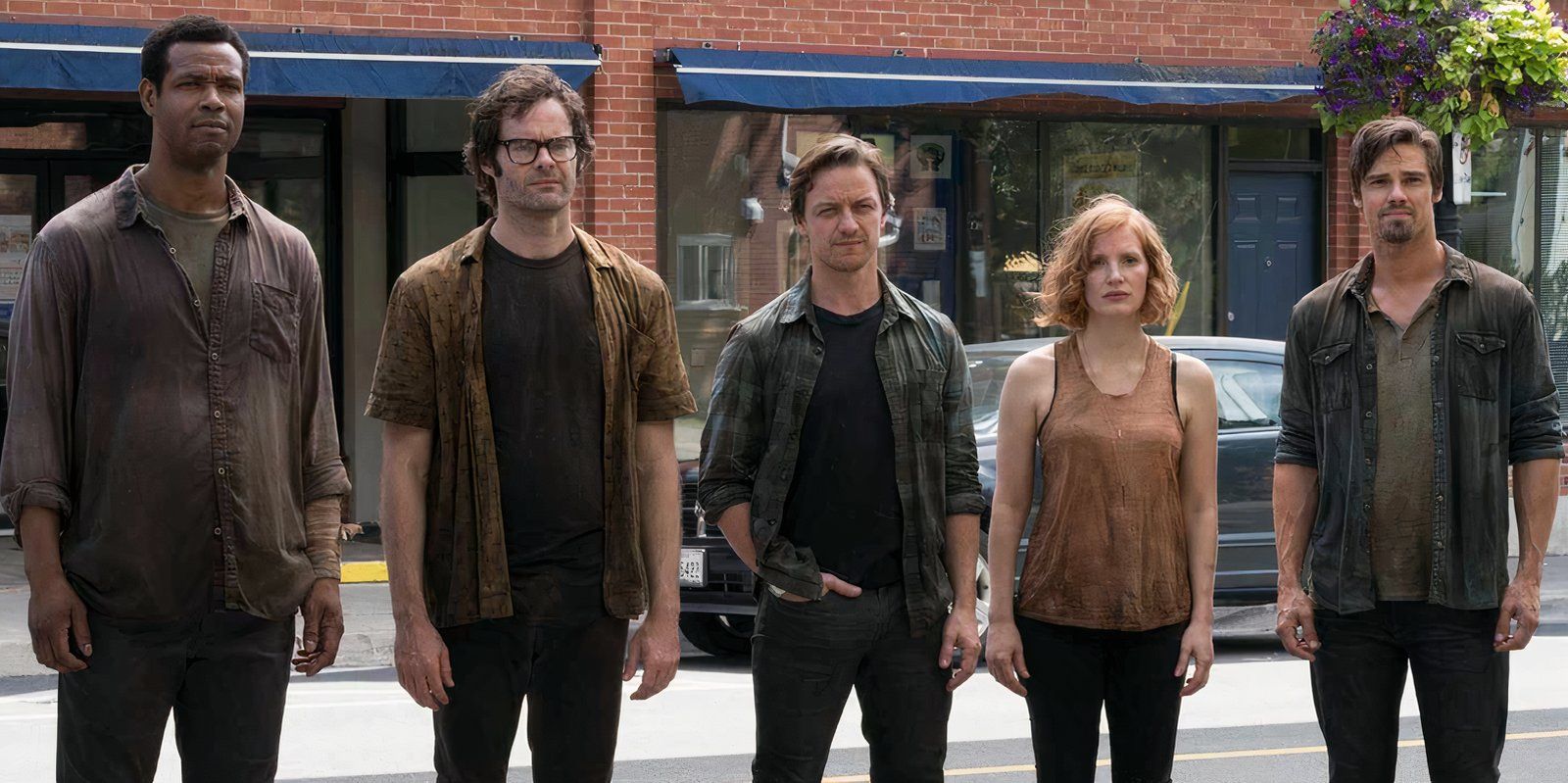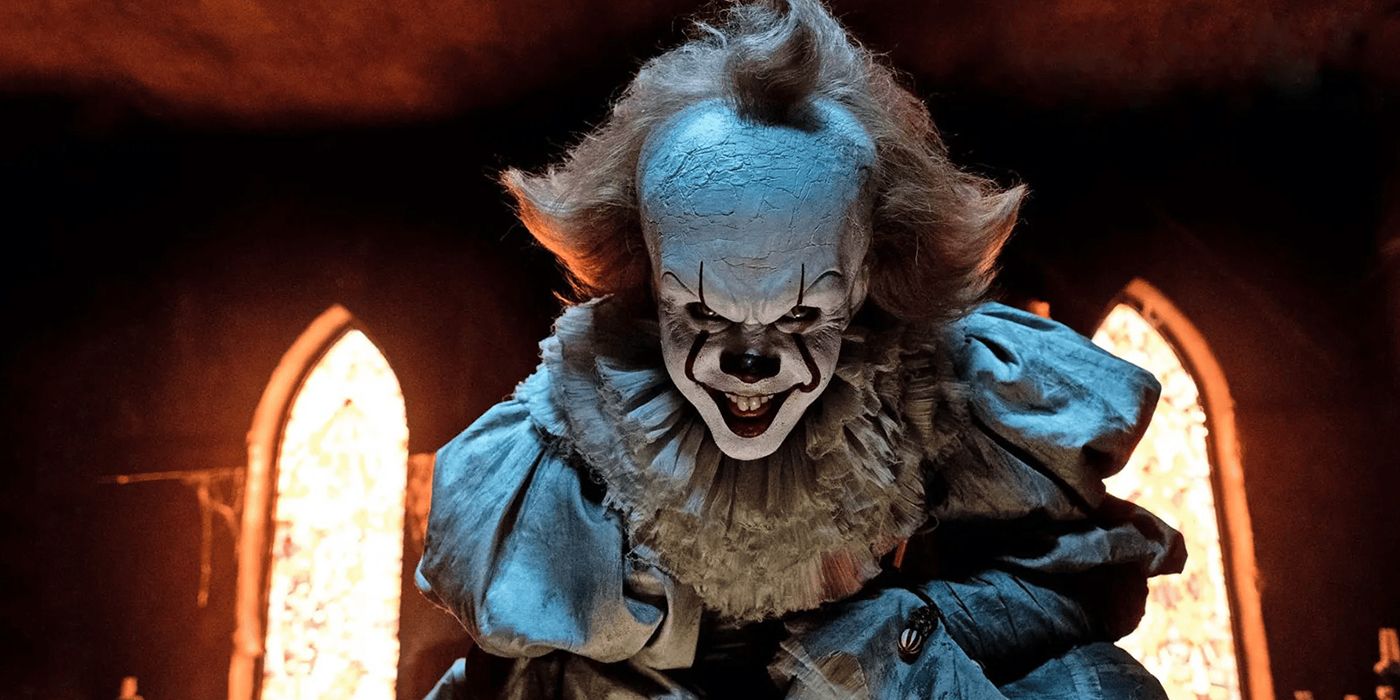When adapting the monster-sized Stephen King book, director Andy Muscietti had to pick and choose what to include, but one of his changes for It: Chapter 2 never fully made sense. Mistakes in movie adaptations of Stephen King’s books aren’t uncommon because his books are so dense and include immense amounts of world-building and lore. Even his short stories and novellas feel like a challenge for adaptations.
One of the better adaptations that has ever graced the big screen is Andy Muscietti’s It duology. The movies get more right than wrong, which is impressive, considering the book is 1,138 pages long. However, like every movie version of a Stephen King book, it makes significant changes. While some of them benefit the films, one change to It: Chapter Two never entirely made sense.
The Losers Club All Have Successful Careers As Adults In The Book & The Movie
The Members Of The Losers Club Who Leave Derry All Have Successful Careers
In both the Stephen King book and It: Chapter Two, the Losers Club have the same careers. Beverly becomes a fashion designer and runs the fashion company alongside her abusive husband. Bill has built a career as an author so famous that his books are getting adapted into Hollywood movies. Richie turns into a comedian, which is probably the most logical career outcome. Ben becomes an architect. Stan and Eddie’s jobs are less flashy, but they’re equally well-off. Stan is the owner of a successful accounting business, and Eddie owns a limousine company that works with the stars.
The Losers Club’s Careers Don’t Make Sense In It: Chapter Two
The Fact That They All Have Successful Careers Is Odd
The IT book provides a solid explanation of the Losers Club’s successful careers that are tied back to Pennywise’s powers. However, It: Chapter Two removes his motivation to meddle in their adult lives and careers. Unfortunately, it also doesn’t offer an alternative explanation. As such, the fact that all the Losers Club members who left Derry, Maine, found wealth, fame, and notoriety makes zero sense.
Pennywise sees them as the “ones who got away” in the film and longs for their return, so he wouldn’t have a reason to give them careers that would keep them away.
If it were just one person who found wild amounts of success in their career, it could be written off as the result of hard work. However, the idea that every single one of them worked hard enough to get to the very top of their careers feels laughable. That’s simply not realistic, especially since they don’t seem to come from wealthy families.
Perhaps the Turtle intervened to help them, but they don’t ever show him onscreen or imply his existence. As such, his influence feels like a significant stretch. Ultimately, it seems like an oversight in adapting the book for the big screen.
The Losers Club’s Success As Adults Is Because Of Pennywise In The Book
Pennywise Influences The Careers Of The Losers Club In Adulthood
I’ve read IT by Stephen King a few times, and in every reread, my interpretation of the Losers Club’s success in the book is that Pennywise doesn’t want them to come back because he knows they can defeat him. By making them wealthy and successful, he decreases the chances of them returning to the town of Derry. They don’t have an incentive to return to a place that caused them so much trauma.
On the other hand, the Turtle makes it impossible for the Losers Club to have children before their second showdown with it. There are two aspects to this. Firstly, they need to reconnect with their innocence in order to defeat the shapeshifting alien. The adult responsibility of raising a child would distance them from their childhood. Secondly, the lack of children and unhappy marriages means that they will be able to leave at a moment’s notice to come back to Derry. Essentially, the two sides are in a cosmic chess match, with the Losers Club acting as their pawns.
Unfortunately, It: Chapter Two completely throws the motivation out the window. Pennywise sees them as the “ones who got away” in the film and longs for their return, so he wouldn’t have a reason to give them careers that would keep them away. That being said, other interpretations of the Stephen King book exist because IT is packed with subtext rather than explicit explanations. He weaves together clues and hints that could be taken in a few different ways, which is part of the brilliance of IT. Perhaps there is another explanation for It: Chapter Two’s approach that could fill in the blanks when it comes to the movie.







